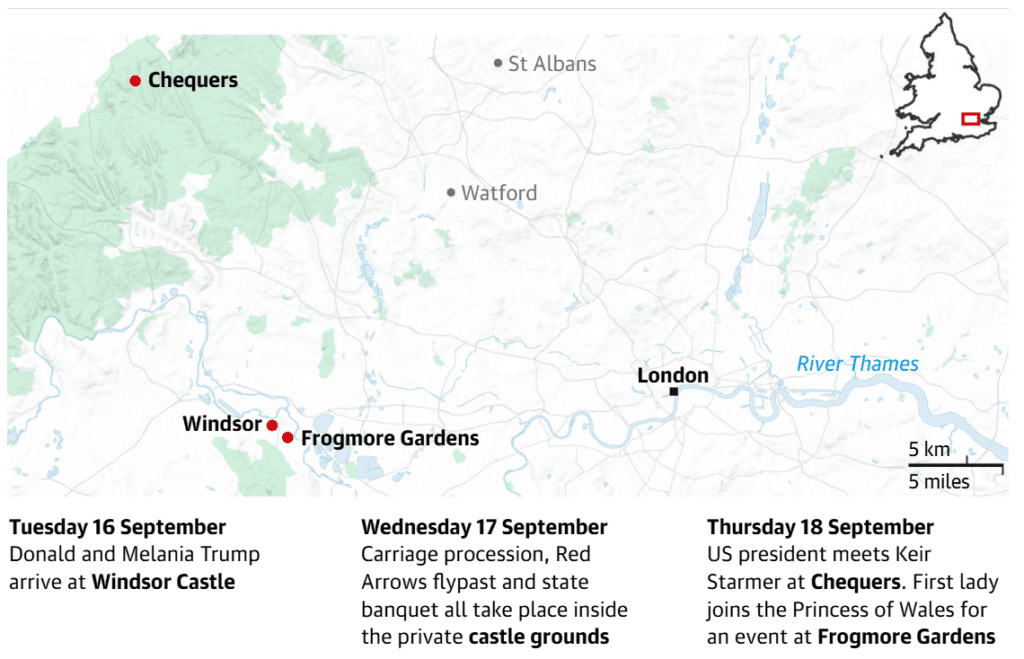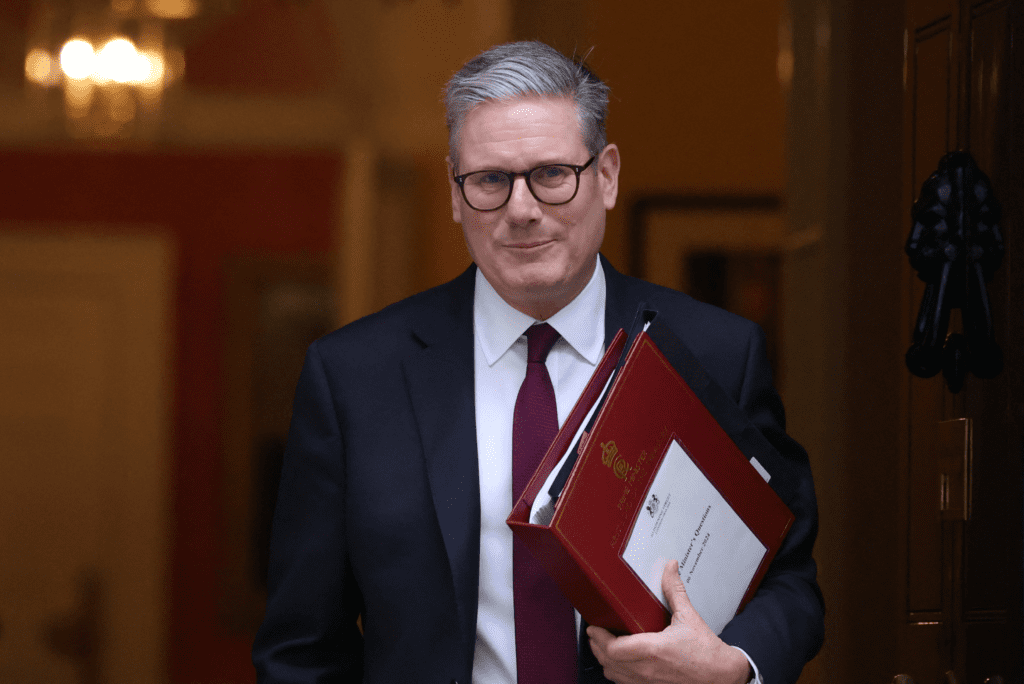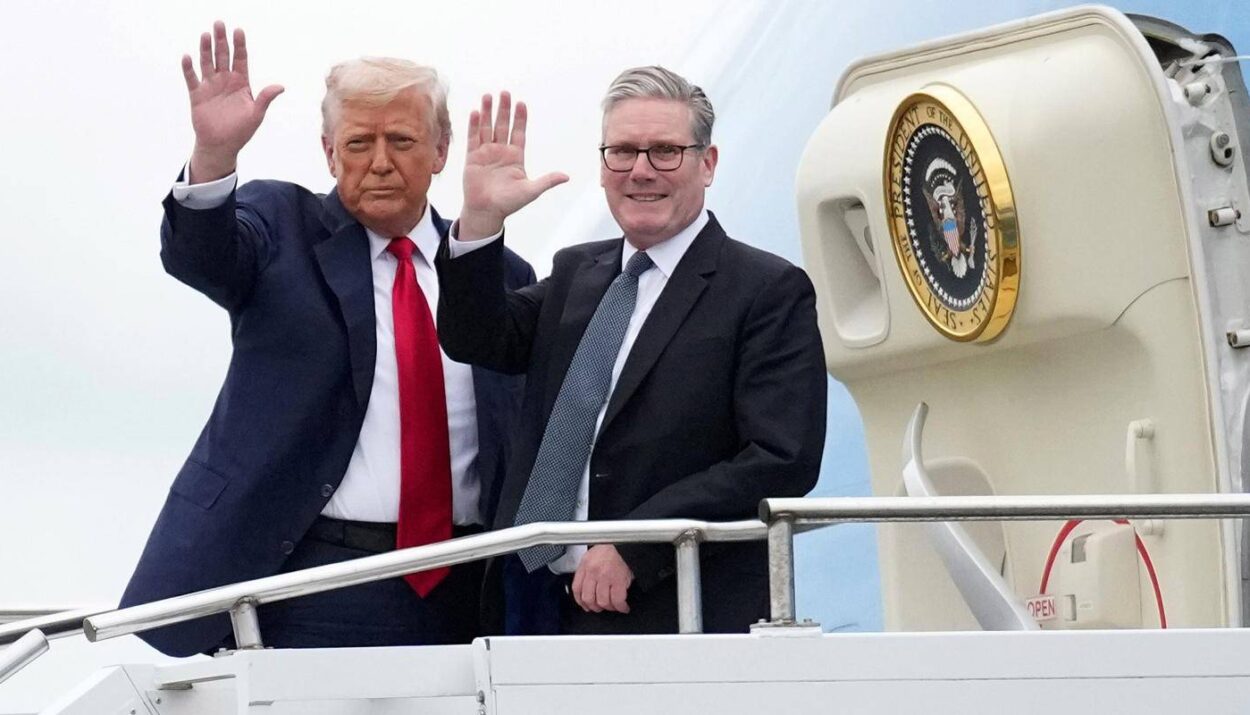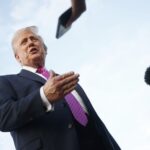President Donald Trump arrives in the UK for a rare second state visit, greeted with royal ceremony but facing a politically charged backdrop for both Washington and London.
US President Donald Trump will touch down in London on Tuesday evening for a two-day state visit unlike any other. It marks the first time an American president has been granted a second official state visit, underlining the importance of the “special relationship” between the US and the UK. Yet the trip arrives at a moment of domestic political strain for British Prime Minister Keir Starmer, contentious debates over trade and tariffs, and lingering controversy over Trump’s links to Jeffrey Epstein.
Royal Pageantry at Windsor
Trump and First Lady Melania Trump will be greeted Wednesday morning at Windsor Castle by King Charles III, Queen Camilla, Prince William, and Princess Catherine. The couple will be honoured with a royal salute, a carriage procession, and a flypast featuring American F-35 jets alongside the British Red Arrows. Later in the day, Trump will lay a wreath at Queen Elizabeth II’s tomb in St. George’s Chapel before attending a lavish state banquet.
Trump has long expressed admiration for the British monarchy, calling Charles an “elegant gentleman” and describing Windsor Castle as “the ultimate.” His clear affection for Britain’s royal traditions has been cited by UK officials as a powerful lever of “soft power” to build goodwill ahead of Thursday’s more difficult negotiations.

Trade and Economic Agenda
Thursday’s agenda will focus squarely on trade and investment. Trump and Starmer will meet at Chequers, the prime minister’s country residence, for bilateral talks expected to cover:
- Tariffs on steel and aluminum: Britain currently faces a 25% levy on its metal exports to the US. London hopes to secure a reduction to zero, or at least greater quotas, after narrowly avoiding a threatened 50% tariff.
- Technology partnerships: Major announcements are expected from US tech giants, including Nvidia, OpenAI, Google, Blackrock, and Alphabet, with multi-billion-pound commitments to AI, quantum computing, and UK data centers. Blackrock has pledged £500 million ($640m) into UK infrastructure, while Alphabet has confirmed a £5 billion AI investment.
- Nuclear energy cooperation: The two countries will advance plans for a joint nuclear energy program, including the construction of a new power plant at Hartlepool and development of small modular reactors to support AI-driven industries.
- Capital markets and finance: Treasury Secretary Scott Bessent and Chancellor Rachel Reeves are expected to push for deeper alignment in financial regulation, particularly in cryptocurrencies and stablecoins, with Coinbase, Circle, and Ripple among the companies lobbying for inclusion in the deal.
Earlier in the week, the UK government highlighted over $1 billion in new US investments from firms including Bank of America and PayPal, expected to create up to 1,800 British jobs.
Political Backdrop in Britain
The visit comes at a torrid time for Starmer’s government. In the past fortnight:
- Deputy Prime Minister Angela Rayner resigned over a house tax scandal.
- UK Ambassador to the US Peter Mandelson was sacked following revelations about his past links to Jeffrey Epstein.
- Starmer faces unrest within his Labour Party, a collapse in approval ratings (69% disapproval, according to YouGov), and protests over immigration, including a 100,000-strong far-right rally in London led by activist Tommy Robinson.
The Epstein scandal has been particularly damaging. Mandelson’s departure after leaked emails and his past ties to Epstein overshadow Starmer’s judgment, while Trump himself has faced renewed scrutiny after the publication of Epstein’s 50th birthday album containing a note allegedly signed by Trump — something the president denies.
Both leaders will likely face awkward questions on the subject at their Thursday joint press conference.

Security and Geopolitics
The visit also has a sharp geopolitical edge. Key issues on the table include:
- Ukraine: Starmer is expected to press Trump to take a tougher stance against Russian President Vladimir Putin. Tensions escalated last week when Russian drones violated Polish airspace, provoking sharp condemnation from Poland and Britain. Trump downplayed the incident, calling it “possibly a mistake,” while Starmer branded it an “egregious violation.”
- Gaza conflict: Discussions are expected on the Israel–Palestine crisis, where Trump has faced criticism for his pro-Israel tilt and reluctance to engage in multilateral diplomacy.
- Transatlantic defense: Britain confirmed this week it will deploy fighter jets to defend Polish airspace alongside NATO, highlighting differences with Trump’s cautious rhetoric.
Why This Visit Matters
The trip symbolizes more than ceremonial grandeur:
- It is Trump’s second UK state visit, following his 2019 banquet with Queen Elizabeth II, a distinction no US president has received before.
- For Starmer, it is a chance to secure concrete economic wins and distract from domestic troubles.
- For Trump, it offers both a foreign policy stage and an opportunity to highlight his dealmaking credentials ahead of next year’s US election cycle.
Yet protests are already being planned across London and Windsor, and any misstep — whether on tariffs, Epstein, or Ukraine — could dominate headlines.
The Road Ahead
The UK and US are poised to announce several major deals by the end of the week, spanning metals, tech, energy, and digital finance. But the deeper test is political: whether Starmer can emerge from the visit appearing statesmanlike, and whether Trump can balance his penchant for showmanship with the gravitas of international diplomacy.
As one British official put it: “This week is about showing the world that the special relationship isn’t just about history — it’s about shaping the future.”










